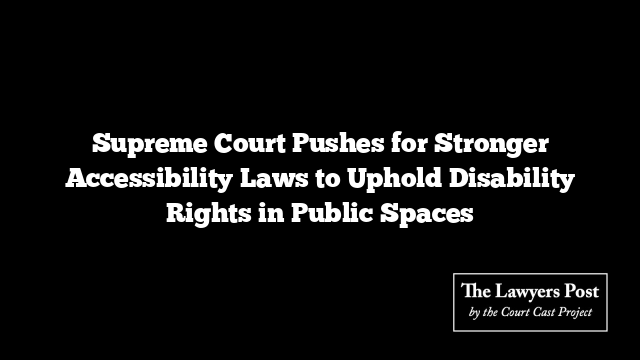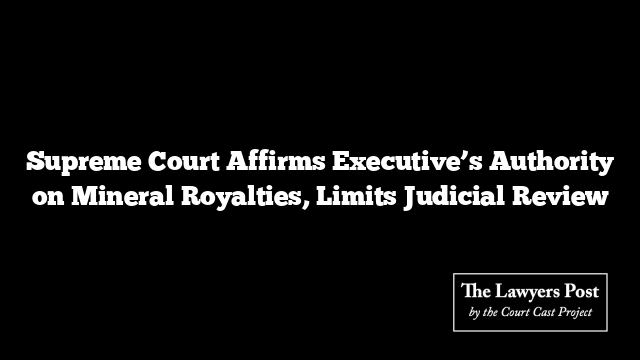In a landmark ruling, the Supreme Court has directed the Union Government to introduce binding regulations to ensure public spaces are accessible to people with disabilities, reinforcing the intent of the Rights of Persons with Disabilities (RPWD) Act, 2016. The Court found that current regulations under Rule 15 of the RPWD Rules, 2017, fell short of making accessibility a legal requirement, instead offering only voluntary guidelines.
The judgment was issued by a bench led by Chief Justice DY Chandrachud, with Justices JB Pardiwala and Manoj Misra. It stemmed from a public interest litigation filed by Rajive Raturi, a visually impaired individual, who had been seeking better access to public places since 2005. The case had seen significant progress, with the Court previously ordering the Union and States to improve access to public buildings. A 2023 report from the Centre for Disability Studies at NALSAR University of Law further informed the latest judgment.
In its decision, the Court emphasized the need for accessible spaces not just as a right but as an essential foundation for people with disabilities to exercise all their rights effectively. Drawing from global standards such as the UN Convention on the Rights of Persons with Disabilities, the Court pointed out that accessibility is not an optional feature but a necessity embedded in the core of rights realization.
The Court particularly critiqued Rule 15 for failing to impose non-negotiable standards. While the existing rule sets out guidelines, it lacks the force of law to guarantee compliance, which the RPWD Act intended to establish. The judgment pointed out that while progress toward accessibility is a vital goal, there must also be enforceable baseline standards.
The Union Government has been tasked with developing these mandatory rules within the next three months. The Court emphasized that this process should include input from various stakeholders, including NALSAR’s Centre for Disability Studies, to ensure comprehensive and practical regulations. Once these new rules are set, the government must enforce penalties for non-compliance, as outlined in the RPWD Act.
Key principles for the new accessibility rules include the promotion of universal design, ensuring inclusivity for a wide range of disabilities, and integrating assistive technologies for digital and physical spaces. The Court also stressed the importance of ongoing consultations with disability advocacy groups to ensure the rules address real-world challenges faced by individuals with disabilities.
The Union Government’s progress will be reviewed on 7 March 2025, marking the next step in this critical process for disability rights in India.





